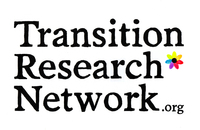Inclusion and Diversity
Researchincludes a wide range of people of diverse backgrounds, knowledges and skills. It is carried out in a way that respects equality and human rights.
+problem
The history of research in western societies is that it is conducted by people from more powerful social, economic and political groups. This profoundly affects the nature of knowledge produced, and the kind of changes it is used for.
+background
In the last few decades, this position has been challenged by feminist, anti-racist, postcolonialist and indigenous researchers and activists.
Beyond political issues of ownership and representation, research is improved when it is guided by the knowledge of people reflecting diverse societies. It has resulted in more critical, reflexive and rigorous social and environmental research, and makes research more likely to work as a means for research as activism, and outcomes that are socially just or empowering for those at the sharp end of the issues tackled. It helps to generate novel questions and priorities, approaches, methods and solutions.
For Transition research, inclusion and diversity relates to the permaculture principle of integrate, don’t segregate. It means including and valuing the knowledge and contributions of a wide range of people. It means using methods and processes that prioritise this, and not letting certain voices dominate.
+solution
Research should include a wide range of people of diverse backgrounds, knowledges and skills. It should be carried out in a way that respects equality and human rights.
+sources
HP8: Integrate rather than segregate
